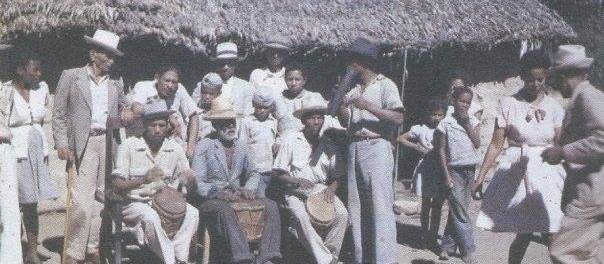We Wear The Mask: 15 Stories About Passing in America (edited by Brando Skyhorse & Lisa Page) [Review]Posted in Articles, Autobiography, Book/Video Reviews, Media Archive, Passing, United States on 2017-08-01 18:29Z by Steven |
Kirkus Reviews
2017-07-24
Brando Skyhorse and Lisa Page (eds.), We Wear the Mask: 15 Stories about Passing in America (Boston: Beacon Press, 2017)
Writers explore how and why the phenomenon of “passing” both shocks and fascinates.
Skyhorse (English/Indiana Univ.; Take This Man, 2014, etc.) and Page (Creative Writing and English/George Washington Univ.) assemble a collection of 15 authentic narratives about how people attempt to “win access to the specific life they want, the ultimate form of assimilation, the pure embodiment of the American Dream,” by assuming to be a class or race they are inherently not. Both of the editors know this particular form of “reinvention” well and contribute their perspectives in highly personal essays. Skyhorse, who received his name from his mother “after my Mexican biological father abandoned us,” opens with reflections on how he, as a Mexican-American with the surname Ulloa, passed himself as an American Indian on his college applications. Page chronicles how her black great-grandmother passed for white in Mississippi in order to get a college education. The editors agree that “each of us sometimes employs misdirection to let someone jump to a different conclusion about who we are.” Racial passing also plays a key role in Achy Obejas’ tender recollection of how her Cuban-born father reinvented his “Third World soul” to create a better future for his family in America and in Marc Fitten’s excavation of his familial roots as an urgent preventative tool against diseases predisposed to Asian culture, which his great-grandfather went to great lengths to blur…
Read the entire review here.






